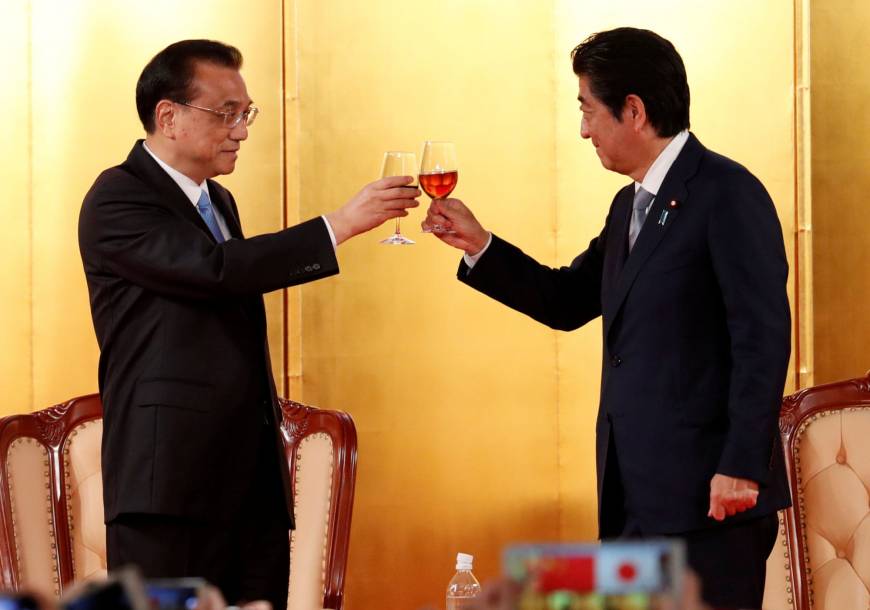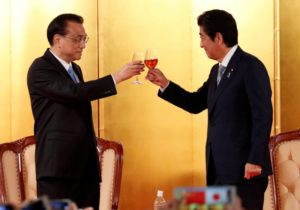
Momentum can change trends in international relations. A series of summits in Panmunjom and Tokyo has created growing momentum toward dialogue and peace rather than pressure and tension.
In April, the leaders of the two Koreas agreed to work with the United States and China with a view to ending the seven-decade Korean War and pursuing the “complete denuclearization” of the Korean Peninsula.

This month, the leaders of Japan, China and South Korea displayed cooperative and amicable postures. The rising momentum toward improvement in Japan-China ties and Japan-South Korea relations has dramatically changed a regional vibe long strained by sensitive issues such as “comfort women” and the Senkaku Islands.
The initial momentum, created at the North-South summit, contributed to the second round of momentum in the trilateral summit in Tokyo. Dialogue and cooperation has now become mainstream in East Asian countries.
Will this momentum continue and lead to sustainable stability in the region?
Let me focus on the momentum for improvement in Japan-China relations.
There are economic and political aspects to be discussed in judging the development of the relationship between the two great powers in East Asia. These aspects have optimism and pessimism as well as expectations and skepticism.
First is the economic aspect.
The two countries are faced with uncertainty and risk in the midst of trade friction with the U.S., in particular increasing concerns about a trade war between China and the U.S. that could hurt their own economies as well as those of their major trading partners, including Japan. Strengthening economic ties between Japan and China would benefit both countries. During the summits they shared an understanding of the importance of free trade.
China is Japan’s biggest trading partner. Almost half of all overseas operations set up by Japanese companies are located in China. They would increase their enthusiasm and expectations for expanded business opportunities if renewed cooperation in various fields between the two governments strengthen bilateral economic ties. The recent efforts by China to improve its investment environment, including by granting Japan a 200 billion yuan ($31.4 billion) investment quota for the first time to buy Chinese stocks, bonds and other assets, are also encouraging. However, as European and U.S. financial institutions have already been granted such an investment quota, it remains to be seen how much this really benefits Japanese firms.
